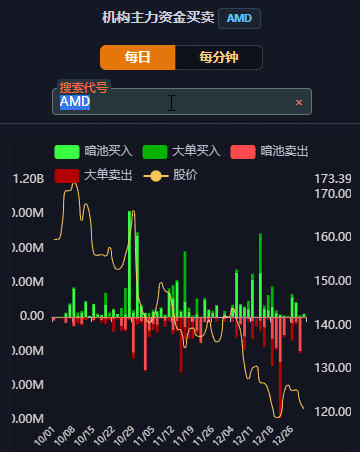1、审计机构早应加大审计力度 以避免虚假帐目
因审计机构普华永道中天(PwC Zhongtian)加大了审计力度,从而导致网秦去年第四季度出现了净亏损以及负面经营现金流的困境。为此,浑水还认为,普华永道中天在网秦发布去年第四季度财报之前就应当加大力度对网秦的财报业绩进行严格审查,要是这样的话,网秦此前的季度财报肯定也会是一团糟。在浑水看来,正是由于普华永道中天的严格审查,网秦2013年第四季度出现了毛利率下降、经营现金流为负、符合美国通用会计准则的净亏损等局面,这与此前的强势财报相比,的确让投资者为之一震。
浑水在报告中指出,在2013年第四季度财报中,网秦以预付给制造商的费用大幅增加和偿还应付帐款加剧等为借口,来解释现金未增长的现象。与往常一样,网秦的应收帐目天数仍然不高,浑水认为,如果其在网秦审计期间发布初步报告,那么网秦将不会有时间来找借口以应付审计力度加强的局面。浑水还指出,要想了解网秦2013年第四季度的业绩比预期更糟糕的原因,投资者还需要认识到此前对该公司的审计不够严谨,而此次普华永道中天加大了对网秦财报的审计力度之后,网秦也就很难制造虚假业绩和现金流了。
2、超额支付并购业务 虚增营收
浑水在报告中指出,网秦继续给并购业务多付款的方式,来提升虚假营收。网秦宣布其已经花费大量资金收购了一家名为“天津华永无线科技有限公司(vLife)”的小公司约58%的股权。天津永华无线科技有限公司自2006年以来只融资50万美元,而且此前似乎一直是一个约会网站,而网秦的收购价格却高达8000万美元。此次并购交易多以股权和美元支付,其中的一部分将被网秦计入到公司虚假的“海外收入”之中。
3、孤注一掷维护股价 臆造虚假营收渠道
网秦一直在努力维持股价的上扬势头,为此,网秦通过发布超过此前预期的营收增长数据和提升未来业绩预期就成了实现股价目标的工具。但是,网秦为了制造虚高的营收,包括不符合此前预期的营收,网秦也需要经历一番周折。2013年第四季度,网秦的广告营收大大超过了投资者的预期,一些类型的营收要比其它数据更加容易伪造。在浑水看来,对网秦而言,制造虚假的广告营收易如反掌。特别是,网秦可以通过一些渠道,如“通过网秦移动安全产品、移动游戏和广告网络平台等提供的第三方应用”来制作人们难以证实的虚假数据。
4、投资者不应当对第四季度亏损感到震惊
投资者可能认对网秦去年第四季度的亏损业绩感到震惊。但在浑水看来,投资者根本不必这样,因为网秦此前的财报并没有得到应的严格审计。
5、网秦管理层释放明确信号:对网秦未来缺乏信心
浑水在报告中指出,去年第四季度,网秦内部人士明确表示他们他们对公司未来前景缺乏信心。网秦在回应浑水此前的初步报告时,曾宣布公司高管将展示“对公司的强大信心”,为此公司管理层将通过在公开市场买入网秦股票等方式来加以证实这一点。然而,浑水在对网秦第四季度财进行了研究之后发现,网秦管理层实际上并没有运用任何个人资金来买入公司股票。
2013年11月12日,网秦曾发布新闻,称公司宣布了高管回购股票计划,总购买额为300万美元。然而,浑水却发现,网秦高管根本没有买进任何股票,而且网秦还为此找到了借口——“为了遵守相关法律,以及公司的股票交易政策,网秦高管团队在2013年第四季度期间还无法在公开市场买入股票。”
对此,浑水认为,如果说高管愿意花费300万美元买入公司股票,以此彰显他们对公司的信心,那么,既然没买成,那难道不可以说明网秦高管对公司未来失去信心了吗?
6、奥马尔·汗的实际作用?
浑水认为,如果网秦是一家货真价实的真正公司,那么不足为奇的是,作为该公司联席首席执行官之一的奥马尔·汗(Omar Khan)早就该被赶走了。他的股票补偿费用一直高达1亿美元左右,然而他的情况却很少被外界所知。浑水指出,网秦报告中的营收都是来自于林宇掌管的帐面,而奥马尔·汗几乎毫无用处,只是会说几句无关紧要的空话。
为了应对浑水的报告,网秦一直称自己非常“透明”。然而,网秦的电话会议却多次被“内部安排”。在2013年第四季度财报的电话会议上,主要只以奥马尔·汗作秀为主(林宇只是在会议临近结束之际才作了简短发言)。在这次电话会议上,网秦高管只是选择了四个给予该公司股票评级的买方分析师来进行提问,而且这四名分析师都给予网秦股票“买入”评级。
8、对独立委员会的调查保持谨慎
在浑水看来,独立委员会的调查结果矛盾重重,不值得一看,只会给投资者带来更多伤痛。此外,网秦还拒绝了由浑水提名的Plante & Moran PLLC公司来核查独立委员会的调查结论之请求,对此,浑水认为,网秦毫透明性可言。
原文:PwC’s Additional Scrutiny Ensured NQ Reported a Q4 Loss and Negative Operating Cash Flow
Based on NQ’s disappointing Q4 results, including its surprising GAAP loss and negative operating cash flow, we strongly believe that NQ’s auditor, PriceWaterhouseCoopers Zhongtian (“PwC Zhongtian”), bolstered its level of due diligence during its 2013 audit of the company. Our view is supported by the fact that NQ took an extra month to release its Q4 earnings compared to last year.
NQ surprised investors by reporting a reduction in gross margin and negative operating cash flow in its Q4 results. This indicates to us that PwC was doing its job in a more robust manner than in prior years, although we expect NQ to receive an unqualified audit opinion before the end of the month. As long as NQ has excuses for cash not flowing into its accounts (i.e., its negative operating cash flow), it can essentially report whatever revenue amount it wants. We saw these same shenanigans in our investigation of Sino-Forest, which was subsequently confirmed during the company’s bankruptcy proceedings. Sino-Forest’s bankruptcy monitor reported that over 95% of its reported gross profit never actually showed up in its bank accounts. Sino-Forest’s auditor was aware of this, but, like NQ, Sino-Forest was able to tell its auditor that it used the cash in its operations. Without needing to show cash in its bank accounts, there was nothing to stop Sino-Forest from overstating revenue and assets by billions of dollars.
In its Q4 results, NQ’s uses a massive increase in prepayments to vendors and a big pay down in accounts payable as an excuse for not showing an increase in cash. As always, NQ’s accounts receivable Days Sales Outstanding remained implausibly high. Had we released our initial report during NQ’s audit (i.e., after December 31st), we believe that NQ would not have had time to adequately prepare its defenses and excuses against a more robust audit.
To understand why NQ’s results were much worse than expected, investors need to realize that prior audits of the company were likely not as rigorous, and the extra scrutiny made it harder to fake profits and cash flow in Q4.
As we have said multiple times before, audits of public companies are not designed to detect fraud. Auditing standards presume that company documents are genuine and management does not make misrepresentations about their numbers. Audits are generally performed from pre-constructed checklists that are used in thousands of public company audits throughout the world.
These checklists incorporate the standard presumption of honesty. As a result, auditors are not visiting a company’s customers to make sure revenue is accurate nor are they visiting suppliers to confirm whether the company’s volumes match up with the financials they are reporting.
Auditors also do not review government files to confirm that a company’s filings with the government are the same as what they report on their financial statements.
Auditors don’t view themselves as fraud detectors, which is why an audit has been one of the least likely ways to uncover wrongdoing.
NQ Mobile
NQ Mobile
Instead, auditors follow their checklists. These can be made somewhat more robust when there are potential fraud concerns; but even so, the only anti-fraud measure in an auditor’s checklist is the cash confirmation procedure. Unfortunately, investors are never told whether an auditor confirmed cash merely by looking at the static balance as of December 31st, or whether it checked the balance on other dates and reviewed inflow and outflow transactions.
NQ Mobile Continued its Pattern of Overpaying for Acquisitions in Order to Roundtrip Revenue
NQ announced that it yet again spent a lot of money on what is likely a little company called Tianjin HuaYong Wireless Technology Ltd. (vLife). (vLife had only raised a total of $500,000 since inception in 2006, and appears to have previously operated a dating website.) NQ announced that it bought 58% of this company for approximately $80 million. Most of the acquisition consideration was in shares and U.S. dollars. NQ’s acquisition pattern is atypical for U.S.-listed Chinese companies (and frauds) in that it pays for much of its acquisitions in shares. This is especially strange considering that NQ has said it is preserving cash raised through its IPO and other share offerings. We believe the real reason NQ relies so heavily on share issuances is that it reports a significant level of fraudulent revenue from outside of China. (Note that it seems very little of NQ’s non-China revenue comes from the U.S. or other developed markets.) Because of China’s capital controls, NQ needs to have offshore cash in order to fake its non-China revenue. It is highly likely that much of the monetized stock issued for the acquisition will be recorded on the books as international “revenue” in the future.
NQ’s Revenue Growth is a Desperate Attempt to Keep a Floor under the Stock Price
NQ’s larger than expected revenue growth and increased guidance are the only tools it has as it attempts to keep its stock price up. However, NQ had to do some back flips in order to report this inflated revenue, including reporting a mix of revenue that was not in accordance with its previous guidance. In Q4 2013, advertising revenue was much larger than NQ had led investors to expect.
Some types of revenue are easier to fake than others. Our observation is that advertising revenue-based frauds in China are among the easiest to commit. Legitimate operators in the advertising industry deal with numerous intermediaries, and pricing structures are among the most opaque of any industry. For a fraudster, it’s easy pickings. In NQ’s case, its advertising
revenue comes from almost impossible to verify channels such as “third party application referrals through our mobile security products, mobile game and our advertising network platform”.1
If just one year ago, an investor predicted that NQ would generate any advertising revenue in 2013 – let alone $16.7 million in Q4 – they would have been easily dismissed. NQ founder and chairman Yu Lin even made this statement in January 2013:
“Why don’t we take ads? I think the format of ads on mobile phones is not mature yet. Furthermore, there is a fundamental conflict between our safety service, by its very nature, and the advertising model. If you want to target ads accurately, there will be privacy issues.”2
Co-CEO Omar Khan indicated that Q1 2014 results will also be heavily reliant on advertising revenue. If NQ reports strong Q1 2014 advertising revenue, as Mr. Khan indicates, it would be absurd given the contradiction in Mr. Khan’s own comment: “Q1 is typically seasonally lower in enterprise and advertising. Yet we are seeing continued strength in these businesses, sequentially.”3 Because NQ’s numbers are not real, NQ exhibits strange changes in revenue contributions that would never occur with a real business.
Investors Should Not be Surprised by the Q4 Loss
Investors might feel caught off-guard by NQ’s disappointing Q4, given that some long-holders claimed to have conducted due diligence following our initial report. Frankly, we are puzzled that any investor would put so much faith in due diligence meetings that were held after our report came out. Like a child outside of the principal’s, NQ, its suppliers and customers have had the time to get their stories straight to avoid detention – or in this case to continue defrauding investors out of hundreds of millions of dollars.
Making that belief even more misplaced is that these meetings are occurring in China – not Kansas City. Seasoned China businesspeople can frequently recount staged meetings that have taken place at state-owned banks, other state-owned enterprises, and government ministries. To have a staged meeting at a private company is a slam dunk – it’s not uncommon to be able to borrow another company’s factory, changing the sign and the workers’ uniforms just for the day in order to fool investors. We’ve seen this a number of times in our investigations and in China there are even companies that arrange for frauds to rent employees, inventory, computers and other equipment for the day to enable the companies to get through investor due diligence visits.
1 K.B. Teo, Q4 2013 conference call.
3 Omar Sharif Khan, Q4 2013 conference call.
Investors should remember that in NQ’s stock fraud, there are hundreds of millions of dollars in illicit profits at stake, and roughly zero chance that anybody on the China side who colludes with management will ever be punished. Making such due diligence even more pointless is the PRC government’s open antipathy toward short-sellers, particularly Muddy Waters. (As has been reported, we have been hunted by China’s internal espionage agency, the Ministry of State Security.4
But didn’t investors confirm NQ’s cash balances?
In our initial report, we failed to mention that NQ’s purported cash balance was exactly the same as the amount of money it has raised since inception. In other words, its cash balance shows nothing about the veracity of its reported revenues. Even so, NQ’s cash balance is cannot be legitimate because the money it claims to have in the PRC could not have made it into the country in the way NQ claims, given China’s capital controls.
Did NQ really post $103 million in cash in its Beijing Standard Chartered account in November 2013? We cannot say for sure because NQ has refused to allow us to verify the balance in that account, but it wouldn’t surprise us if it actually did post the cash. China has a massive gray market for lending money – the so-called “shadow banking system” – that has grown to over $2 trillion in annual lending.5 Many of these loans are made to highly risky mining and real estate borrowers, but a two-month loan to a company like NQ, which only uses it to show that it has cash in its back account is a pretty attractive bet – especially when secured by a pledge of shares. We weren’t that surprised when NQ approved an amendment to the articles of association on Dec. 23, 2013 that made it easier for Chairman Lin to pledge his shares.6
NQ Management Sent a Clear Signal that it Lacks Confidence in NQ’s Future
In Q4, NQ insiders made clear they lack of confidence in the future of the company. In response to our initial report, NQ announced that senior management would demonstrate its “strong confidence in the company” by buying (a token amount of) shares in the open market. Buried in the middle of NQ’s verbose Q4 press release, we learned that NQ’s management failed to purchase even a single share of stock with their personal funds despite the supposedly low prices at which the stock was trading and its promise to do so.
On November 12, 2013, NQ issued a press release titled “NQ Mobile Announces Senior Manager Share Purchase Plan,” which told investors that senior management was willing to commit an aggregate of $3 million to buy shares. The following excerpt from the press release explains the logic:
“We consider the recent drop in NQ Mobile’s share price to be artificially created by false allegations and we believe our stock to be currently undervalued,” commented Dr. Henry Lin, Chairman and Co-CEO of NQ Mobile. “The plan to purchase NQ Mobile shares by the NQ Mobile senior management team demonstrates our strong confidence in the company and reflects our commitment to executing our business plan and delivering shareholder value.”
To call a spade a spade, $3 million is a token amount. But even we are surprised that management did not spend a single dollar buying shares in Q4 – particularly considering that during much of December, the stock was trading in the $11 range. NQ’s “excuse” can be found in deep in the Q4 press release:
“To comply with on the applicable laws and the Company’s securities trading policies, the Senior Management team was unable to purchase shares on the open market during Q4 2013.”
When a company craps out new shares the way NQ does, it’s hard to believe there is a draconian
– let alone merely responsible – share trading policy in place. So, if formulating a plan to purchase up to $3 million of shares “demonstrates [their] strong confidence in the company”, then what does the failure to spend one dollar demonstrate?
What Role Would Omar Khan Have at a Real Company?
It is not lost on us that if NQ were a real company, Omar Khan would have been fired long ago. Mr. Khan’s stock compensation package has been worth approximately $100 million. Yet, he has delivered little more than press releases. It is clear that almost all of NQ’s reported revenue comes from the book that Henry Lin manages. Mr. Lin is apparently a wizard at generating millions of dollars in annual revenue from countries where NQ lacks even a basic website. (We discuss the phenomenon of NQ’s investment-less emerging markets revenue in detail in our letter to PwC available at: https://www.documentcloud.org/documents/1008238-mw-letter.html.) Taken at face value, Chairman Lin is one of the most successful salesman in modern history. In contrast, all NQ manages to do in the U.S. is pump out press releases with names of “partners”, but produce no meaningful revenue – despite having a prodigious “energy, excitement level and vision” in the U.S. operation.7 (We challenge NQ to release its 2012 and 2013 U.S. revenue if it takes issue with us on this point.)
Any real company would never keep such a highly paid and poorly performing Co-CEO as Omar Khan – particularly when the other Co-CEO is diluting his holdings to keep Mr. Khan around.
In reality, Mr. Khan is merely a $100 million sock puppet. His true value to Chairman Lin, beyond his ability to speak a dialect of English known as Consultant Speak, is to spew
7 Omar Sharif Khan, Q4 2013 conference call.
meaningless drivel such as: “We have more tools at our disposal that make us more relevant to a broader set of constituents than the days when I was at Samsung or Motorola.”8 (Samsung’s 2013 revenue was $220 billion.)
Second Straight Filibustered Conference Call
NQ has stressed in response to our reports that it is “transparent”. However, its two filibustered earnings calls since our report belie that claim. For the recent call, it was Mr. Khan’s turn to run out the clock (Chairman Lin did an excellent job of that last time). The result was that NQ only had to take questions from the four sell-side analysts covering the stock, all of whom presently rate it a Buy. We have noted that China frauds generally try to avoid calling on buy-side questioners because their views are not as easy for management to gauge ahead of time. The strange thing about the dynamic during this particular Q&A is that each of the sell-side analysts asked numerous questions without shame, eschewing the usual courtesy shown to other questioners of asking only one to two questions. Did NQ arrange for these analysts to provide an assist in running out the clock? We don’t know, but NQ certainly seems to have a different definition of transparency.
Be Cautious of Independent Committee Investigations
As we wrote in an op-ed in the Financial Times that ran one week after NQ’s “flash crash”, internal investigations conducted by supposedly independent directors are fraught with conflicts of interest and are frequently worthless endeavors that lead to more pain for investors.9 For these reasons, it is unfortunate that NQ denied investors the transparency that would have been provided by accepting our offer to have Plante & Moran PLLC review the committee’s findings.
Regardless, if NQ’s independent committee reports that there is no evidence of significant wrongdoing, this will be an attempt at a whitewash. 转发自 Muddy Waters
Use of Muddy Waters reports is limited by the Terms of Service on its website, which are as
follows. To be authorized to access such reports, you must agree to these terms, regardless of
whether you have downloaded its reports directly from this website or someone else has
supplied the report to you without authorization from Muddy Waters.
更多网秦分析和NQ美股行情:
更多美股分析,美股培训,美股学习,请查阅《美股分析教程》(实战技巧班),如何运用巴菲特投资理念到美国股市
更多华尔街突发重大消息,请查阅《实盘分析室》《手机交易资讯》,我们的美股分析师会为美股交易者发布华尔街,美股行情的第一手资讯,详细分析纳斯达克,道琼斯,S&P500,标普500指数里面的美国股票














